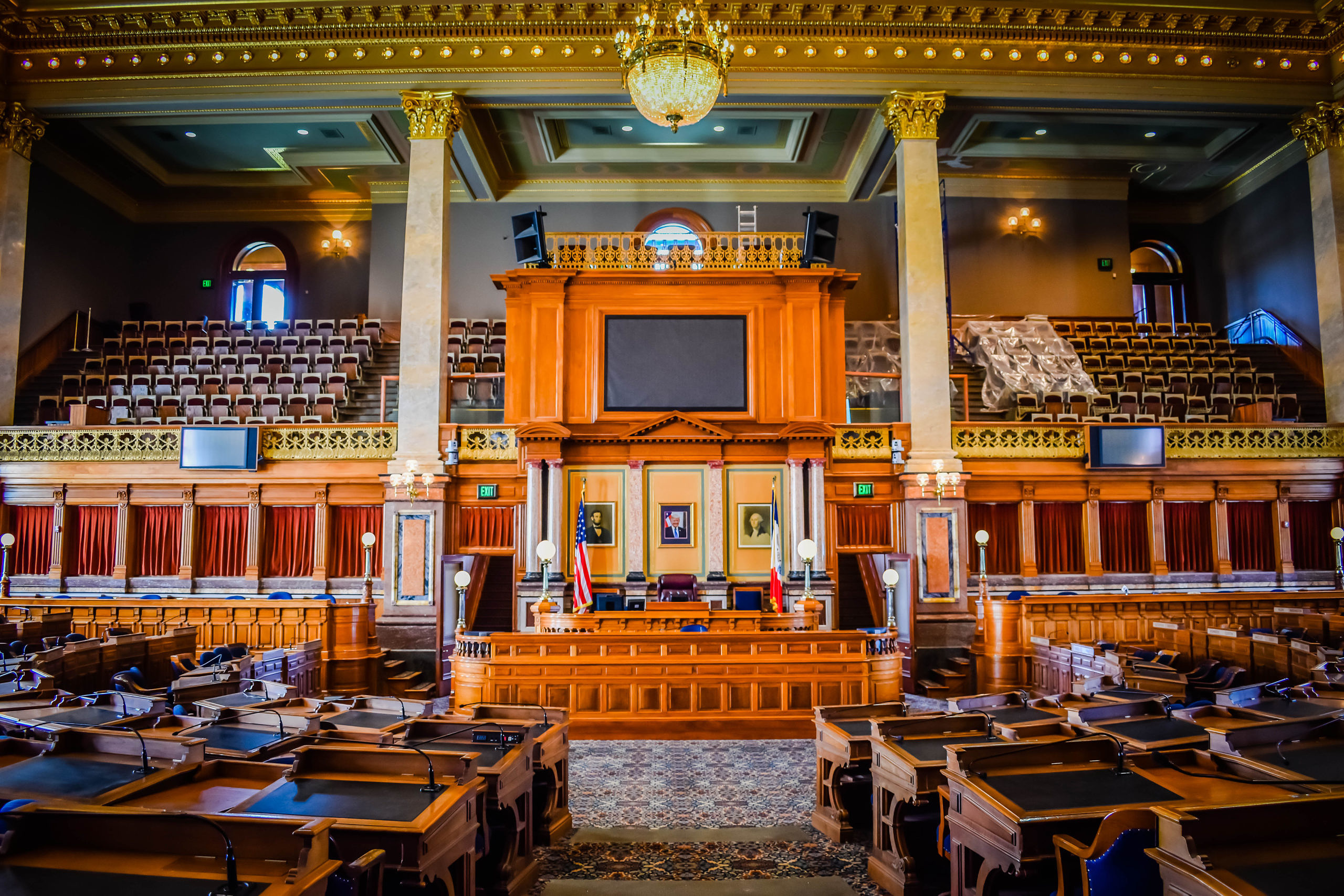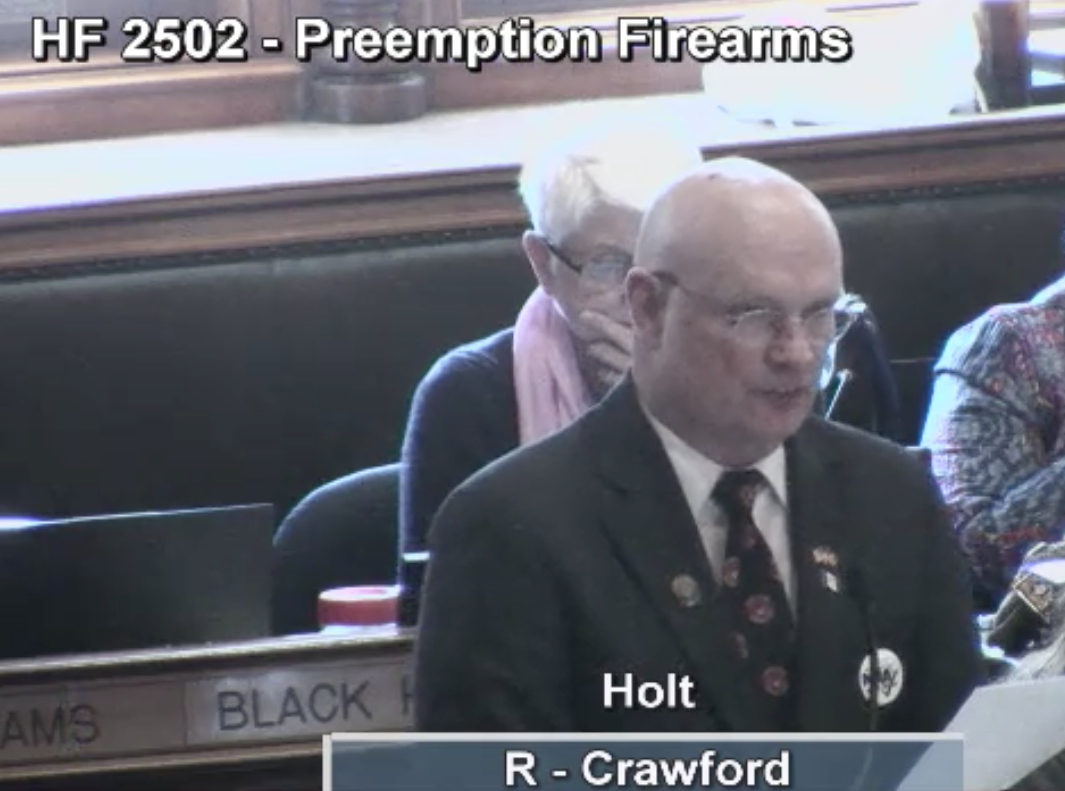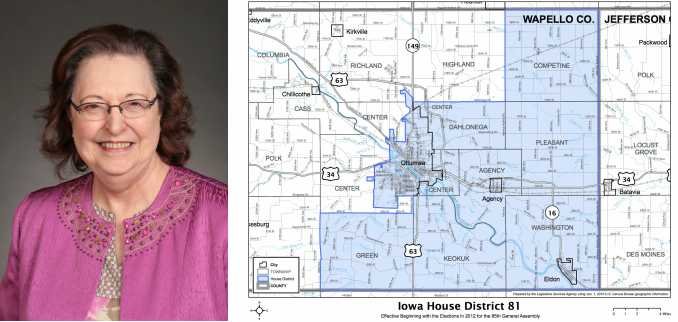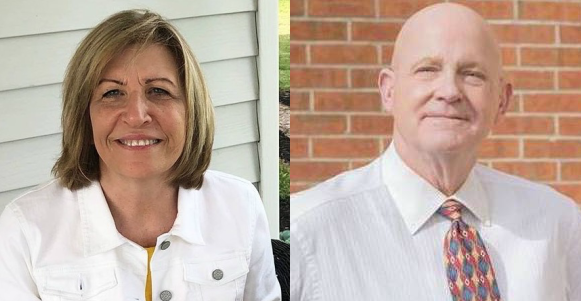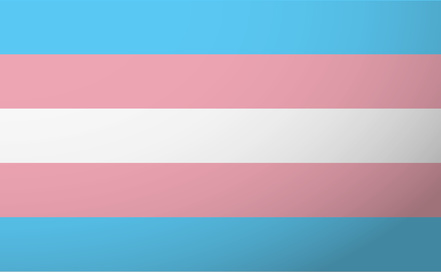UPDATE: Republicans selected Adrian Dickey and Democrats selected Mary Stewart at special nominating conventions on January 7. Original post follows.
Voters in a battleground southeast Iowa Senate district will soon choose a successor to Republican State Senator Mariannette Miller-Meeks.
U.S. House Speaker Nancy Pelosi confirmed on December 30 that the House will seat Miller-Meeks, who was certified the winner by six votes in Iowa’s second Congressional district. The same day, Miller-Meeks confirmed that she is resigning from the Iowa legislature, effective January 2.
To my knowledge, no candidate has announced plans to run in Senate district 41 early next year. During a December 30 telephone interview, Democrat Mary Stewart said she was considering the race but had no timetable for deciding. Miller-Meeks defeated Stewart in 2018 by 11,460 votes to 10,652 (51.7 percent to 48.1 percent).
Former Republican State Senator Mark Chelgren represented the district for eight years, retiring in 2018. He hadn’t heard about Miller-Meeks’ resignation before speaking to Bleeding Heartland by phone on December 30. Chelgren said he would consider running for the Senate again but wasn’t ready to give a formal statement, since he hadn’t discussed the matter with his family or Republican colleagues.
Though recent voting patterns in the area favor Republicans, turnout for a mid-winter special election is a question mark.




